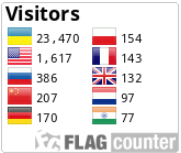TEACHER EDUCATORS: FROM “THE HIDDEN PROFESSION” TO REVEALED PROFESSION
DOI:
https://doi.org/10.28925/2518-7635.2017.2.3Keywords:
EU policy, key competence areas, first-order, second-order knowledge, teacher educators.Abstract
Knowledge about the EU policy regarding teacher educators is of significant interest to both scholars and stakeholders of higher education. The authors of this paper have identified four key areas where the analysis of current trends and the formulation of relevant questions for discussion seem to be particularly important for those involved in teacher education and training. These are the development of our knowledge basis about the EU initiatives on teacher education in Europe, the EU policy regarding teacher educators, the challenges and new trends characterising the role of teacher educators in the initial education and the professional development. This study also concentrates on teacher educators’ status, their profile of core values and areas of competence that underpin teacher educators’ diverse and multifaceted roles.
The paper uses literature review as a basis in identifying critical parameters for the EU policy analysis and its implementation to higher education sector. The European expert study made some very specific proposals for the definition of a teacher educators’ competence profile, making a distinction between first-order and second-order knowledge, skills and attitudes and defining key competence areas. Two key actions to support teacher educators in Member States are characterized: to develop an explicit profile of the competences required by teacher educators; to reinforce collaboration between all the key actors in all phases of teacher education.
Downloads
References
The Ark of Inquiry project website. Retrieved from http://www.arkofinquiry.eu/homepage
Association for Teacher Education (ATE) in Europe. (2016). Retrieved from http://www.atee1.org
Boyd, Pete, White, Elizabeth. (2017). Teacher Educator Professional Inquiry in an Age of Accountability. In: Boyd, Pete & Szplit, Agnieszka (Eds.), Teachers and Teacher Educators Learning Through Inquiry: International Perspectives. Kraków, Poland: Wydawnictwo Attyka, 123–142. Retrieved from http://insight.cumbria.ac.uk/3089
Council Resolution of 27 June 2002 on lifelong learning (2002/C 163/01). Official Journal of the European Communities, C 1631–3.
Education and Training 2020 programme Cluster “Teachers and Trainers.” (2010). Report of a Peer Learning Activity in Reykjavik, Iceland 21-24 June 2010, “The Profession of Teacher Educator in Europe.” Retrieved from: http://www.kslll.net/Documents/Teachers%
European Commission. (2001). Report from the commission the concrete future objectives of education systems, 31.01.2001, COM(2001) 59, final. Retrieved from http://eur-lex.europa.eu/homepage.html
European Commission. (2005). Common European principles for teacher competences and qualifications. Retrieved from http://eur-lex.europa.eu/homepage.html
European Commission. (2007). Communication from the Commission to the Council and the European parliament Improving the Quality of Teacher Education, 3 Auguest 2007, COM(2007) 392, final. Retrieved from: http://eur-lex.europa.eu/homepage.html
European Council. (2009). Council conclusions on the professional development of teachers and school leaders. Official Journal of the European Communities, C 302 /6–9.
European Commission. (2012). Commission staff working document. Supporting the Teaching Professions for Better Learning Outcomes. Accompanying the document Communication from the Commission “Rethinking Education: Investing in skills for better socio-economic outcomes”. Strasbourg, 20.11.2012 SWD (2012) 374, final. Retrieved from http://eur-lex.europa.eu/homepage.html
European Commission. (2013b). Supporting Teacher Educators for better learning outcomes. A document based on the work of the Thematic Working Group ‘Teacher Professional Development. Retrieved from http://eur-lex.europa.eu/homepage.html
European Commission. (2016). Communication from the Commission to the European Parliament and the Council the European economic and social Committee and the Committee of the regions. A New Skills Agenda for Europe: Working together to strengthen human capital, employability and competitiveness, Brussels, 10.6.2016, COM (2016) 381, final. Retrieved from http://eur-lex.europa.eu/homepage.html
European Commission. (2017). Comission staff working document. Communication on School development and excellent teaching for a great start in life, Brussels 30.05. 2017, {COM(2017) 248 final} 56 p. Retrieved from http://eur-lex.europa.eu/legal-content/FI/TXT/?uri=CELEX%3A52017SC0165
Integration, Innovation and Improvement – the Professional Identity of Teacher Educators. EU Presidency Conference. 18.02.2013-19.02.2013, Dublin Castle.
Retrieved from http://www.cedefop.europa.eu/en/events-and-projects/events/conference-integration-innovation-and-improvement-professional-identity
Lisbon European Council 23 and 24 march 2000. Presidency conclusions. Retrieved from http://www.europarl.europa.eu/summits/lis1_en.htm#top
Literacy Teacher Educators: Preparing Teachers for a Changing World. (2013). Edited by Clare Kosnik...[et al.]. Imprint Rotterdam; Boston: SensePublishers. doi. 10.1007/978-94-6209-200-6.
Lunenberg, M., Dengerink, J., & Korthagen, F. (2014). The Professional Teacher Educator. Roles, Behaviour, and Professional Development of Teacher Educators. SensePublishers-Rotterdam. doi 10.1007/978-94-6209-518-2.
Murray, Jean. (2016). Trends in teacher education across Europe: an initial analysis. In Falus, Iván and Orgoványi-Gajdos, Judit (Eds.) New Aspects in European Teacher Education. Eger, Hungary: Líceum Kiadó.
Preparing Teachers for Diversity: the Role of Initial Teacher Education. (2017). Final Report to DG Education, Youth, Sport and Culture of the European Commission, Luxembourg: Publications Office of the EU.
Rebecca, Eliahoo. (2017). Teacher educators: proposing new professional development models within an English further education context. Professional Development in Education 43:2, 179–193.
Shagrir, L. (2017). Teacher Educators’ Professional Development: Motivators and Delayers. In book: Teachers and teacher educators learning through inquiry: International perspectives, Chapter: 8, Publisher: Wydawnictwo Attyka, Editors: P. Boyd & A. Szplit, 159–180.
Snoek, M., Swennen, A., & Van der Klink, M. (2011). The quality of teacher educators in the European policy debate: actions and measures to improve the professionalism of teacher educators. Professional Development in Education, 37:5, 651–664.
Swennen, A, Geerdink, G., & Volman, M. (2017). Developing a Researcher Identity as Teacher Educator. In book: Teachers and Teacher Educators Learning Through Inquiry: International Perspectives. P. Boyd & A. Szplit (Eds.). Publisher: Wydawnictwo Attyka, 143–157.
Teacher Education in Europe: An ETUCE Policy Paper (2009). Adopted by the Executive Board on 14th April 2008.
Teacher education and teacher education policies in the European Union. Budapest, Final conference and seminar 3rd-4th July 2014 EDiTE Team, ELTE. Retrieved from https://ppk.elte.hu/file/EDiTE_Budapest-conference_Issue.pdf
The Council conclusions of 20 May 2014 on effective teacher education. (2014). (2014/C 183/05) Official Journal of the European Communities, C183, 14.6.2014, 22–25.
The Recommendation of the European Parliament and of the Council on key competences for lifelong learning (2006/962/EC). Official Journal of the European Communities, L 394, 30.12.2006, 10–18.
Velzen, Van, Van der Klink, M., Swennen, A., & Yaffe, E. (2010). The induction of teacher educators. Professional development in Education, 36: 1–2, 61–75. doi: 10.1080/19415250903454817
nd Annual ATEE Conference. (2017). Book of Abstracts. A. Škugor, I. Đurđević & B. Dubrovnik (Eds.), Croatia, 23-25 October 2017. 412 p.













